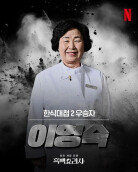Chinese Nationalism Feared to Spiral out of Control
Chinese Nationalism Feared to Spiral out of Control
Posted April. 29, 2008 08:17,
Chinas nationalism is heating up just months before the country holds its first-ever Olympic Games in Beijing.
Recently, Chinas Olympic-driven nationalism has faced strong challenges as human rights organizations staged protests during the international leg of the Olympic torch relay in the wake of Beijings military crackdown in Tibet in March. People around the world are paying attention to the Chinese who are seemingly angry at what they see as the West trying to spoil their party.
Flaring nationalism is not new. But experts say this time public outrage appears to be more aggressive and forceful. In particular, concerns are mounting over the emergence of blind nationalism accompanying violence.
▽ Chinese Remain Silent Over Their Violence
Why did the Korean media air just the violent behaviors committed by the Chinese students, instead of covering Chinese people being beaten?
This was a complaint made by a Chinese student who saw the media report on Sundays violent clashes between anti-China activists and Chinese residents during the torch relay in Seoul. One popular Chinese online chat room, Tianya, features a photo in which a Chinese student fell to the ground with his head bleeding.
It is not difficult to think that numerous Chinese students would have been injured in the clashes, given that thousands of supporters and opponents of the torch relay took to the streets. However, there were no signs of self-reflection on the online chat room over Chinese peoples violent attack on human rights activists using plastic water bottles and stones.
Nowadays, a growing number of Chinese citizens began aggressively responding to the increasing criticism in the international community. CNN was heavily blamed by the Chinese for its coverage of the demonstrations in Tibet. "Shut up CNN" t-shirts went on sale online. There have been occasional campaigns to boycott foreign goods in China.
Some Chinese did not hesitate to go on witch hunt for its citizens. Duke University freshman Wang Qingyuan, who tried to intervene between pro-Tibet activists and Chinese counterparts, was labeled as a traitor.
It is reported that a bucket of feces was emptied on the doorstep of her parents house.
Jin Jing, a young disabled Chinese athlete, became a national heroine as a photo spread featuring her struggling to maintain a grip on the Olympic torch while grappling with a pro-Tibet demonstrator on the streets of Paris on April 7. Now she was degraded into a betrayer when she opposed to what she believed irrational boycott against Carrefour.
▽ Chinese Governments Silence and Negligence
With the rapidly diverging income gap between rich and poor families in society, the Chinese government has strengthened its nationalist education in an effort to promote unity and morale of the nation.
China`s nationalist education, which started in 1994, was designed to intensify the unity among the 56 ethnic groups in the country. With its economic power rapidly growing, the country finds the checks and controls by Western societies increasing in recent years. Against this backdrop, the country is now directing against the West.
Experts believe that Chinas nationalism, which was sparked in the wake of the disruptions of the torch relays and the Tibet crisis, was in part instigated by the tightly controlled state media under the negligence of the central government. The Chinese media have accused exiled Tibetan spiritual leader, the Dalai Lama, of masterminding the torch protests, and insisted that the Western media is to be blamed for their biased coverage.
▽ Double-edged Sword for the Communist Party
Experts say even the Communist Party is wary of the outbreaks of virulent and aggressive nationalist movements.
This is particularly true given that nationalism became a great legitimating glue to hold the society together, and the Chinese Communist Party is uncertain when the nations 220 million Internet-propelled citizens would turn their backs on the party and pose a threat. Many experts say that this was the reason behind the recent attempt by the Chinese government to call for rational nationalism and try to harness public sentiment in a constructive way.
Lee Jin-yeong, a professor of the Political Science and Diplomacy Department at Inha University, said, With Chinas economic power rapidly rising, its nationalism is taking on Sino-centrism, adding, If left unchanged, chances are high that its aggressive aspects could serve as a stumbling block in promoting global peace and order.
orionha@donga.com
Headline News
- Pres. Yoon addresses the nation at a press conference
- LX Group chairman gifts 100 million won to employee family welcoming quadruplets
- Tax-exempt shared offices in rural areas misused as tax havens
- President-Elect Trump promises 'peace through strength'
- French gambler wins 67.2 billion won by betting on Trump’s election win







